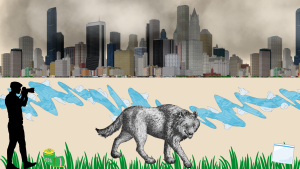“Sometimes being a friend means mastering the art of timing. There is a time for silence. A time to let go and allow people to hurl themselves into their own destiny. And a time to prepare to pick up the pieces when it’s all over.” – Gloria Naylor
One of the things that I was most self-conscious about growing up was knowing who my “real” friends were. In general, I am someone who is very open to friendship and have always believed in giving people the benefit of the doubt. Also, I am someone who takes the concept of friendship very seriously and many of my best friends are the same as family. I would give them the shirt off my back, the money in my wallet, and take a bullet for them – no questions asked. With that said, one can understand why I have such a difficult time dealing with the growing apart, and eventual loss, of certain friendships.
I never understood how and why people grew apart. I thought that if you were nice, respectful, and open to your friends, they would always be there for you, as there would be no reason for them ever to be upset or angry toward you. I was young and naïve. But that still didn’t lessen the pain that came with slowly losing someone who you considered a brother or sister to you. There is no way to truly prepare for that heartache, especially when you never expect such a thing to happen. As I’ve gotten older, though, I realized that in some cases, the ending of friendships is a necessary part of personal growth, much like the removal of weeds from a garden.
Now, I haven’t lost many good friends in my life, but for the few I have, I always believed that it was my fault. That if I had only worked harder, forgave, and was less selfish, things would have gone differently. Maybe I just wasn’t there enough? Maybe I was too petty? Maybe… I don’t know. But I beat myself up and tried desperately to make things right, racking my brain to find ways to bring them back into my life and make things like they once were.
One night, during my freshman or sophomore year of college, I had a late night conversation with my dad. I was home for the weekend and was feeling nostalgic for some reason. I wanted to talk about how much things had changed in the course of only a few years. I told him that looking back, I felt really sad. While I was happy to be going to such an amazing college and I had started to make new friends and meet all these new people, I felt bad that I was starting to lose touch with those I had considered friends for years. My father then stopped me and gave what I consider one of his best pieces of advice: “Know your distance.”
I, of course, asked him to clarify. He began to explain to me a lot of the things I already knew: that people change as you get older, some interests broaden or go away, and you start becoming a different person altogether. Then he said, “So… it is essential you know your distance. Your friends are like planets. You revolve around them and they revolve around you. Some of them you are close with and others are a bit farther away. Sometimes you are closer to one person and later on, you become closer to others. And sometimes influences outside of your hands can cause you to fall out of sync with them. It’s slow at first, but over time, your paths get so warped that not even the force of gravity can hold them in orbit… and they fly away.”
Now while my father isn’t a physicist, he made a good point: Your friends today are not guaranteed to be your friends tomorrow, and as a senior at Rollins, I know first-hand that my friends today are by no means the same people I was friends with as a freshman. As well, it’s always important to know where you stand with them. People can become toxic and can bring you down. You must always surround yourself with those who will raise you up, keep you in check, and are honest with you… even when it hurts. In some circumstances, you have to drop those people who aren’t worth your time, because time is so precious that you deserve more than to waste such a luxury on those who insist on being “trifling,” or “having little value or importance” as Merriam Webster defines it.
There are those people in our lives that are worth fighting for, and in those cases, one should always put forth the effort to make things work. But if doing so means that you have to sacrifice or act in a manner that defies your values and the essence of who you are or what you believe, then you must let that person go. By that point, there is already a good chance that person is no longer the friend you met in the first place. Above all else, you must always maintain a high level of dignity. No friend – hell – no person is ever worth your self-respect. Once they take that away, you are nothing.
“With friends like these, who needs enemies?” It’s a well-known proverb, but the reason why I didn’t quote it in the beginning is that it does not encapsulate the whole issue. People grow apart for many reasons, and they aren’t always vindictive. But at the end of the day, there is no point in caring about people who don’t care about you, or in making time for people who don’t want to do the same. We have a primal need and hunger for companionship, and yet it can be so hard to surround yourself with good people you can trust. But there is no alternative. We can singularly survive as hermits, but we cannot live, thrive, or prosper as a species that way. It is a constant struggle, but it is one worth fighting for. You’ll never know how good it can be nor have room for new, beautiful flowers if you allow your garden to be riddled with weeds.
The opinions on this page do not necessarily reflect those of The Sandspur, its staff or Rollins College.












Be First to Comment